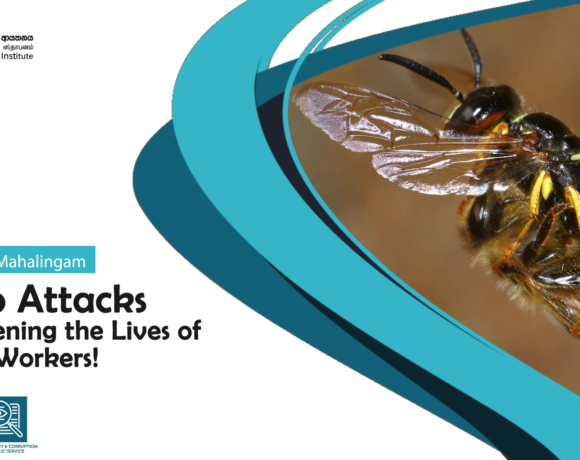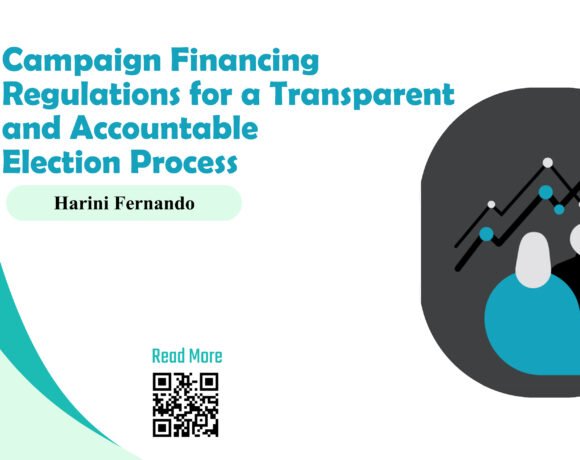Sachini D. Perera
Sri Lanka is currently encountering the second wave of Covid-19. Since mid-March 2020, the Sri Lankan government had to impose an islandwide lockdown for nearly two months during the first wave to maintain social distance and eliminate further community spread. The curfew policy was something people experienced commonly. It was a responsible procedure for the country to go into a long-term lockdown until the nation felt it had survived and healed. However, adopting a lockdown strategy to fight this pandemic costs human and medical resources at a considerably higher rate. As the initial wave was successfully controlled, it resulted in various degrees of negative ‘economic’ shocks.
Dr Chandana Aluthge, senior lecturer at the Department of Economics of the University of Colombo explained that rather than substantial economic deployment to maintain a lockdown, the country faced a severe challenge in its supply and demand chains as the manufacturing process was brought to a halt. Due to the depreciation of the Sri Lankan Rupee, the government had to ban imported items such as vehicles and non-essential goods while imposing taxes on essential goods. Therefore, three-fourths of the workplace operations in both government and private sectors collapsed all of a sudden. It also majorly influenced the export-oriented small economic hubs of Sri Lanka, he explained. Daily wage earners went through a tough time until they received some kind of aid. The Small and Medium Enterprise (SME) sector of Sri Lanka that has contributed over 52% of local economic activities had to pause until further notice by the government. The tourism industry which is another major financial asset has also fallen along with foreign exchange because of this pandemic. The uncertainty was a certain thing people had to reluctantly expect at that time. Even first-world countries experienced a demand shock as lower consumer patterns suddenly came up across the world along with the pandemic.
The Department of Census and Statistics of Sri Lanka kept counting its calculations to analyze economic corruption during the first wave’s countrywide lockdown. The analysis has been concluded under two scenarios; the optimistic scenario and the pessimistic one. According to a recent study conducted by the Center for International Private Enterprise, the overall GDP has a 24 % negative impact on the optimistic scenario and a 39% negative impact on the pessimistic scenario. And according to the overall analysis, the pessimistic scenario is 50% higher than the optimistic scenario during the lockdown period. Asian Development Bank (ADB) statistics show that the local GDP is expected to contract by 6.1%, while the SME sector lost a total revenue of Rs. 514.8 billion due to the lockdown. Also, the government had to spend money on maintenance of quarantine centres, food and beverages for patients, accommodation facilities, essential manpower and transportation services during the first-wave lockdown period. Referring to the situation in Sri Lanka, the World Bank states that, “the combination of falling tourism, manufacturing activity and services associated with the pandemic is envisaged to cause the output to contract by 3.2%, despite the earlier recovery from the April 2019 terrorist attacks.”
When we dig into the situation during the lockdown, many aspects which majorly influence the national economy had split with severe and medium negative shocks. Essential and non-essential manufacturing goods, agriculture, on-going construction projects, banking and financial services, rent and lease activities, legal and accounting activities, the private education sector, major entertainment events, insurance and pension funds were victimized aspects that are still in its process of recovering. The manufacturing of cleaning materials is still having a periodical demand due to the prevalence of Covid-19. Industries that did have a positive financial impact during the lockdown were public health services, public administration, research and development, energy generation, water supply, broadcasting services, and the manufacture of pharmaceuticals.
As Dr Aluthge explains, the inflation in Sri Lanka which was previously 4% has now increased to 6%-7% and it is difficult to recover until a post-lockdown period. There are weaknesses in our economic system which slow down the recovery process and the ability to face future challenges beyond the lockdown. A majority of manufacturing companies, businesses and foreign employees are from the Western Province making it the economic powerhouse of the country. In this second wave, it is quite obvious that the country is experiencing Covid-effected financial corruption of more than 50%, as the Western Province is severely exhausted since the Minuwangoda Covid Cluster was discovered.
Also, Dr Athluthge stressed that we must try to explore new national income laws that could export products that have a high demand around the world with rare substitutes. That kind of export economy cannot even be stopped by a Covid-effected economy. Also, we must reduce unskilled labour practices among foreign labour employees in our country. Unless the government takes on this task, the county will go into more debt and sooner. We should give first preference to local materials. The third-level workforce should be granted a commensurable salary to occupy more quality performance. Rather than targeting macro-markets, Sri Lanka is capable of grabbing micro-markets around the world, so that we can solidify our economic stability in the future. Policymakers and investors should be encouraged to allocate resources to high-demand products and services. These are some key solutions to overcome the current signs of economic fatigue during the lockdown period, remarked by Dr Aluthge.









